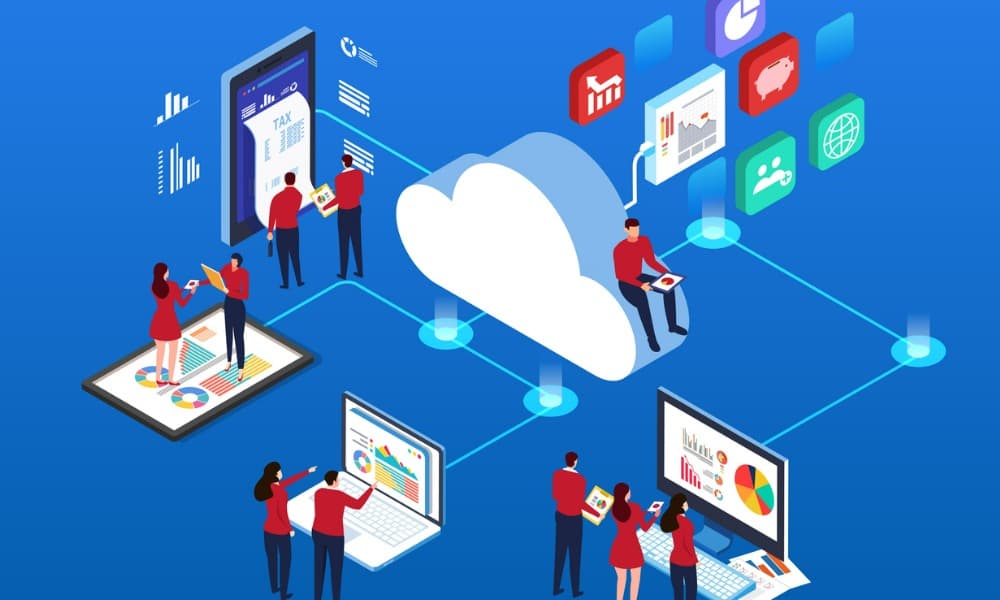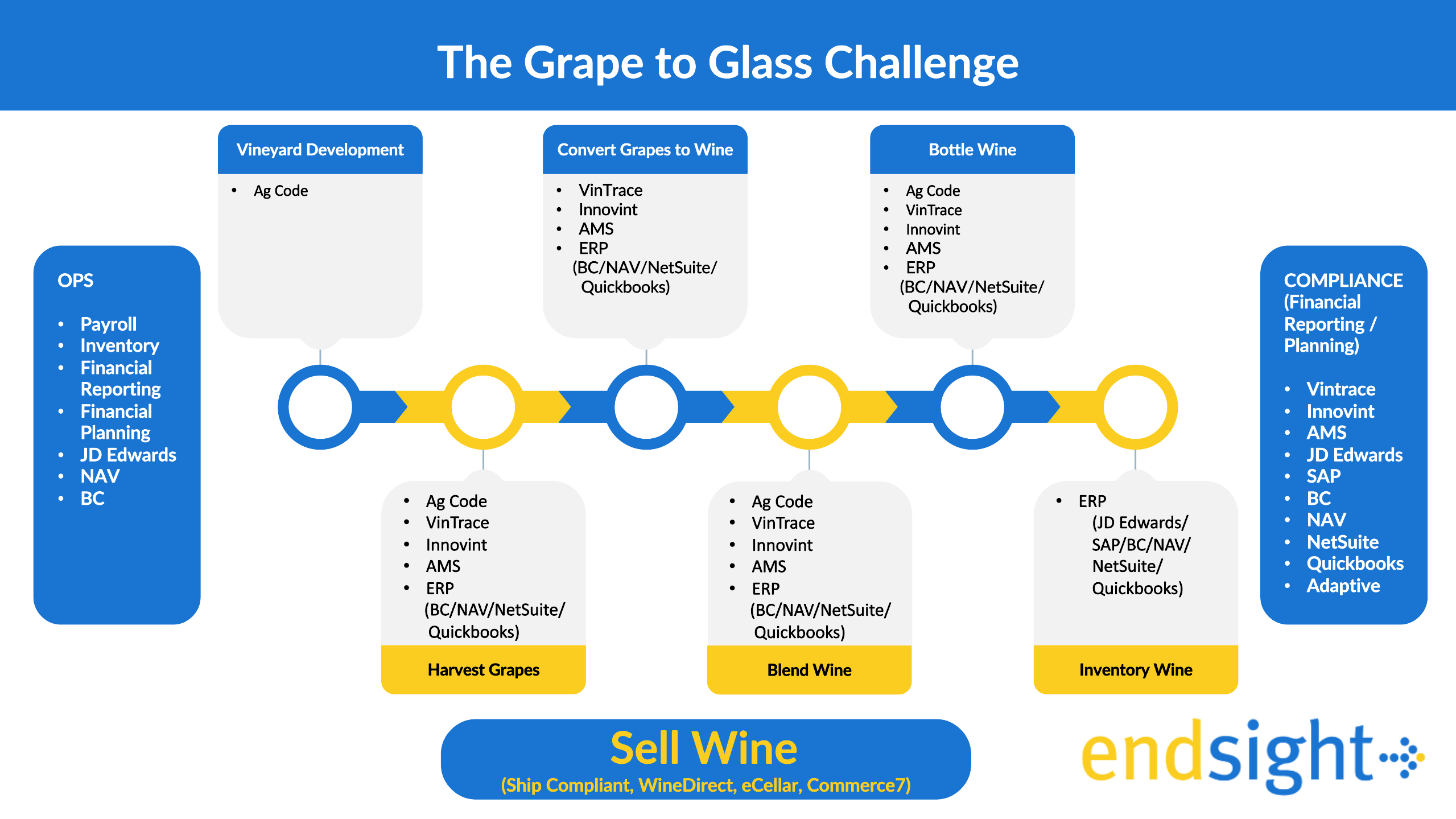Cloud service comparisons for your unique business.
Key Takeaways:
- Who are the top cloud service providers?
- Which business services are in the cloud?
- Which cloud business provider works best for small businesses?
- Which is better – Google Workspace or Microsoft 365 for daily office use?
- Find out tips for choosing a cloud service provider.
- Discover the benefits of using cloud services.
Moving a business to the cloud provides better access and data security, easy access from anywhere, increased employee and team collaboration, and all with the bonus of reduced costs. The problem becomes not whether you should move business operations to the cloud, but to which cloud service provider. And what type of cloud – public, private, or hybrid?
Each provides extensive cloud services geared to any size business, and the subscription costs are minimal compared to the standard on-premises servers, the IT support team, and data center costs of non-cloud systems. Each provider offers advantages to small businesses. Choose the one that works best to grow and support your business.
This guide describes cloud business services from the top providers and how to choose which offers the best value for your unique business needs.
Who are the top cloud service providers for small businesses?
Cloud providers and services range in complexity from providing only office management software applications to fully managed business management services covering office management applications, customer service centers, shipping, financials, sales and advertising, and a variety of other options for enterprise businesses.
The benefits of using cloud services impact any size business. The challenge is choosing the services that best suit the business’s needs. Cloud providers are numerous and include additional subcontractor companies specializing in setting up and supporting full and partial systems for small businesses. Cloud providers can suggest reliable, trusted business partners to help get started, or businesses can opt to implement and configure their own cloud.
The three primary providers of cloud services for business include:
- Microsoft (365 and Azure)
- Amazon Web Services
- Google Workspace
Microsoft Office ruled the business world until 2006 when Google launched Docs and Sheets, which offered cloud-based applications at a low cost for personal and business use. Google’s offerings have since expanded into a full suite of Google Apps now known as Google Workspace.
In response, Microsoft launched Microsoft 365, a cloud-based set of standard but full-featured applications that business users were already familiar with. Microsoft 365 offers a variety of pricing plans – all pay-for-use options that include predictable subscription fees.
Microsoft also created Azure, which provides a full-service cloud services platform that can be set up with virtual desktops and applications, storage, and backup services in minutes. Azure includes an array of business service options. Azure is suitable for any size business and includes extensive customer support through various online channels, tutorials, or accessible documentation.
Amazon Web Services, or AWS, is the original and largest cloud services provider, currently taking in around $25.7 billion in revenue in 2021. AWS cloud benefits include a well-developed and proven platform that is constantly being improved and enhanced. AWS has few performance issues and is extremely reliable and developer friendly. AWS offers over 140 different services, which is great – but may not all be useful for a small business.
Google’s strength lies in its continuous innovation, including analytics, Big Data, Containerization, and a fully featured GCP (Google Public Cloud). Google cloud leverages machine learning and AI extensively to provide an array of quality accessibility tools and features that provide extensive business intelligence and complex analytics.
What business services are available in the cloud?
Cloud services for business include:
- Database storage
- File and record data storage
- Data accessibility from anywhere
- Real-time access and collaboration tools
- High-performance business applications that are fully integrated into the system
- Extensive system-wide security
- Managed services so users can focus on their work and not on the system
- Scalability so businesses can change usage as needed
- Support for business process automation
- Always available and accessible with the latest version or updated software
- Access to emerging technology at a lower cost and with less operational impact
Cloud services include other supportive services that can be configured and up and running in minutes, including:
- Customer service centers
- LMS (Learning Management Systems)
- Virtualization for remote work support
Which is better for daily office use – Google Workspace or Microsoft 365?
As a small business looking only for access to an array of business support applications, which is best – Google Workspace or Microsoft 365? The answer depends on the needs of the business and its users. Google Workspace and Microsoft 365 (M365) have a lot in common. They’re both subscription-based, which means they charge a fee per user in a variety of pricing tiers. Each suite offers similar core business applications for word processing, spreadsheets, presentations, email, calendars, messaging, notes, and videoconferencing, among other tools.
Google can work offline and does not require device installation, whereas M365 must be installed. Differences abound in application quality and feature levels as well. For word processing, Word in M365 offers superior features and capabilities that make using it easier and more productive. Word also includes 300+ design templates for a variety of documents.
Google Docs does have one advantage over Word – real-time collaboration. Google Docs enables users to share documents using links and set security levels. Word does allow users to embed charts, images, and styles in a greater variety than Google Docs.
Similarly, M365 offers the full features of Excel, which represent an embarrassment of riches compared to Google Sheets' straightforward application. Excel is far more complex and offers more templates for charts.
Google Sheets, on the other hand, is much easier to use and offers the functionality most businesses use regularly. Like Google Docs, Sheets offers real-time collaboration features that are easier and more intuitive.
Try out both options and see what best suits the user’s needs across the business, and then compare pricing differences, if any, before making a final decision.
Tips for choosing a cloud provider
The cloud service provider you choose is impacted by the type of cloud desired.
There are three types of cloud service model options to consider:
- Private
- A private cloud means all resources are used by only a single organization. In a private cloud, the business is responsible for the cost of managing the cloud and the services used.
- Public
- A public cloud is accessible over the internet. Public clouds are more cost-effective because the cloud is owned and managed by the cloud service provider.
- Hybrid
- A hybrid cloud is a mix of both private and public cloud use. Hybrid clouds are often used when an organization is restricted by regulatory or legal requirements and cannot host data in servers outside a specific country or region.
Once you’ve narrowed down the type of cloud and the applications and services you need and matched them up with the pricing the business can afford, you’ll have all the details required to make your cloud service provider decision.
Are you ready to benefit from cloud services?
Need help choosing and implementing cloud provider services for your small business? Endsight is your MSP partner, 24/7. Endsight keeps your business up and running using the latest advanced technology for business management. Get your free assessment today and see how Endsight can help your business grow.
Burned by a previous cloud service experience? Endsight is different! Endsight is the managed cloud partner you can trust – all day, every day. We’ll keep your business up and running seamlessly and securely. Check out why our clients chose us to help their business.



/jclause.jpg)
